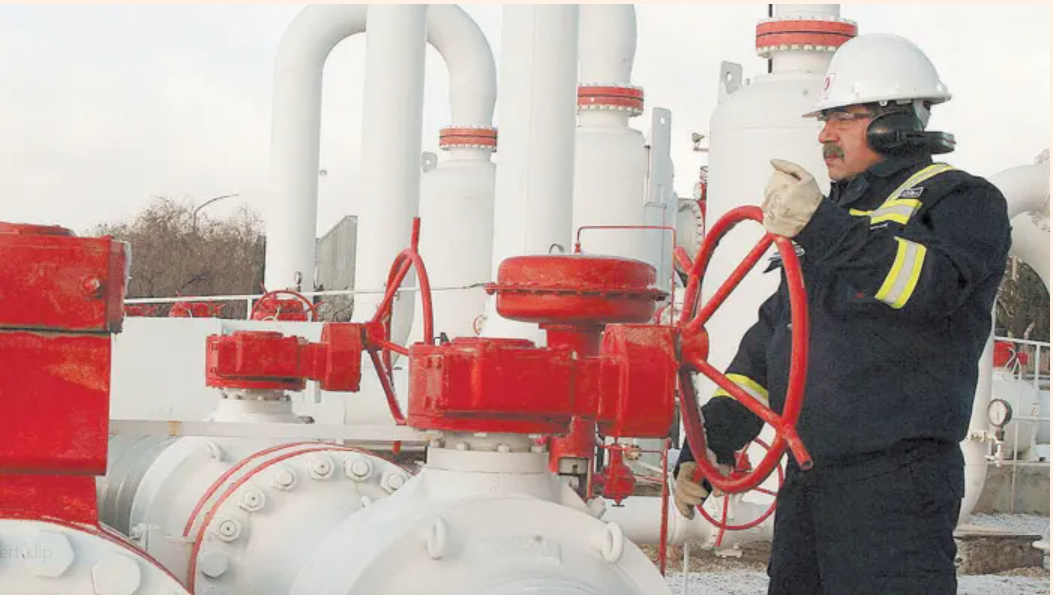En analyse fra Saxo Bank viser, at EU-landene har sløset med energisikkerheden siden Krim-anneksionen i 2014. Der er ikke sket en reduktion af importen af olie og gas fra Rusland, tværtimod. Derfor er Ukraine-krigen et wake-up call for Europa. Bankens makroøkonom, Christopher Dembik, ser på alternativer til den russiske energi. De er til stede, men det vil kræve gigantiske investeringer og tage mange år. Tyskland er mere afhængig end noget andet land af den russiske gas. Christopher Dembik trækker sløret fra den udbredte europæiske og amerikanske opfattelse, at Tyskland er nødt til at droppe Nord Stream-2 gasledningen. Det har Tyskland ikke råd til, skriver Dembik. De økonomiske omkostninger bliver meget større end de politiske gevinster, som Tyskland kan opnå ved at standse projektet som led i de aktuelle sanktioner.
Ukraine conflict: Europe’s energy security threatened
Summary: Since 2014, the European Union (EU) had plenty of time to reduce its energy dependence on the Russian Federation. Instead, gas and oil imports from Russia have increased. The Ukrainian conflict should serve as a wake-up call to the EU on the urgent need to diversify its energy sources. It won’t happen overnight. But there are several solutions fortunately.Christopher Dembik
Head of Macroeconomic Research
The current situation : Russia currently produces 10.1m bpd of oil, of which 5m is exported globally in a crude form. The EU takes about nearly half of it. The most vulnerable EU countries are Germany (for refineries), the Netherlands and Poland. They account for 48 % of all Russian crude oil exports.
Russia also represents 46.8 % of the EU’s natural gas imports versus 32 % in 2012. The EU’s higher energy dependence on Russia is partially the consequence of the green transition implemented by the EU over the past years. The EU has actively promoted intermittent renewables, which cannot provide a constant supply of energy source, while pushing for the closure of nuclear reactors (Germany and Belgium, for instance). This ultimately increased dependence on natural gas imports.
Germany is the most vulnerable EU country – see chart 1 : 55 % of gas imports come from Russia, up 15 points since 2012. It also accounts for 26.7 % of primary energy consumption. Russian gas is transported via three pipelines to Germany as a first entry point to the EU : Nord Stream 1, which is operational since 2012, Yamal-Europe and Brotherhood.
German Chancellor Olaf Scholz has pulled the plug on Nord Stream 2 – which should have doubled Russia’s direct export capacity to Germany, from about 59bn cubic meters to around 100bn cubic meters. This is a very significant step and a chance for a fresh start for Germany’s Russia policy. Political pressure (especially coming from Poland) is increasing on Germany to shut down Nord Stream 1 too. This is unlikely. The economic cost for Germany would outweigh the potential diplomatic gains.

A wake-up call for the EU : The EU’s energy dependence on Russia is nothing new. The issue was raised in 2014 immediately after the annexation of Crimea by the Russian Federation. But nothing has been done by the EU and member state countries. The situation in Ukraine will serve as a wake-up call for the EU, in our view. To reduce the dependence on Russia, we can imagine four options :
– Germany and Belgium reconsider their nuclear power stance.
– More efforts are made to develop shale gas production in the EU and boost renewables.
– The EU asks the United States to export more liquified natural gas (LNG) to Europe – the exports are now at a record of 400m cubic meters per day. But a sustained increase would require the establishment of new LNG infrastructures for billions of dollars and take years to build.
– The EU does more to seek alternative energy sources from e.g. the Gulf (especially Qatar, the world’s largest LNG producer), Azerbaijan through the Southern gas corridor (but this is not the best alternative) and Northern Africa (especially Algeria, the EU’s third largest gas supplier). In the short term, there is nothing to expect from Norway, the EU’s second largest gas supplier. It has already reached the upper limit of its export capacity.
Macro implications : The economist consensus expected that inflation will drop this year. It won’t happen. Expect energy prices to keep increasing. This will be a major headache for central banks. Until yesterday, the majority of concern from central banks stemmed from the inflation impulse resulting from the Russo-Ukrainian crisis. There was a lack of appetite to apply brakes on tightening plans. But this was before the full-scale invasion.
In the short term, several central banks could decide to postpone or scale down their tightening plans depending on the evolution on the ground. In the medium term, we believe that the war situation will mostly constitute a big inflation impulse via higher energy prices (oil will likely stay above the 100$ threshold for a while, for instance).
Coupled with inflation in the services sector, supply chain disruption and wage-price spiral in several countries, this means inflation is likely to continue increasing most of this year. Germany’s producer price index for January was up 25 % year-over-year.
Imagine where it could go with much higher energy prices. What is coming is a massive inflation shock which will force all the central banks, even the European Central Bank, to normalize monetary policy faster and more aggressively than anticipated.











